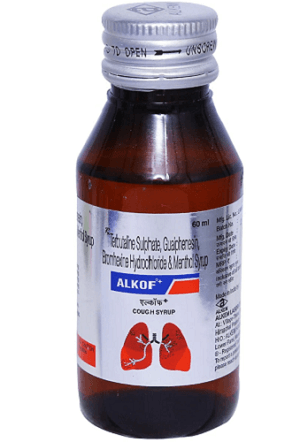Advantages and Disadvantages of Syrup
- Pourable pharmaceutical preparations known as liquid dosage forms contain a combination of drug component and excipients that have been dissolved or suspended in a suitable solvent or mixture of solvents. They are made to generate quick therapeutic effects and/or the maximum therapeutic response in patients who have trouble ingesting solid dosage forms. Whether they contain flavorings or not, syrups are concentrated aqueous formulations of a sugar or sugar substitute. Non-medicated or flavored vehicles are syrups that contain flavoring ingredients but no medications (syrups).
- Solutions or dispersions are two types of liquid dosage forms. While liquid dispersions can be two-phase or multiphase systems made up of one phase dispersed through another phase, pharmaceutical solutions are transparent, homogenous, single-phase systems that contain one or more drug ingredients dissolved in one or more solvents (s). Solid particles (suspensions), oil droplets (emulsions), micelles (surfactant solutions), and lipid vesicles can all be found in the dispersed phase (liposomes).
- Oral and parenteral (injectable, inhalation, ocular, otic, nasal, and topical) methods can be used to administer liquid dose forms.

Advantages of Syrup
- A little syrup goes a long way because it is a highly concentrated source of sweetness. If you're attempting to cut back on sugar or using syrup as a topping for pancakes, waffles, or other baked products where you don't want the sweetness to be overbearing, this implies that you may use less syrup to obtain the same amount of sweetness as other sweeteners.
- It is convenient to use in drinks or as a topping for pancakes and other baked goods because it dissolves easily in liquids. This indicates that syrup mixes nicely with other ingredients and is simple to add into a variety of foods and beverages.
- It can give baked goods moisture and keep them fresh. This is due to the fact that syrup is hygroscopic, which means it may take up moisture from the surrounding environment. Syrup can help keep cakes, breads, and other baked goods moist and fresh for longer periods of time when used in baking.
- Syrups of all kinds, including maple syrup, corn syrup, and agave syrup, are readily available and can be used to flavour food. As a result, you can select a syrup that enhances the tastes in your food or gives a traditional recipe a unique spin. For instance, adding maple syrup to a marinade for grilled chicken can give the dish an interesting and delectable flavour.
Disadvantages of Syrup
- Syrup should only be used in moderation as part of a healthy diet because it is heavy in calories and sugar. The reason for this is that syrup is a concentrated source of sugar, and consuming a lot of sugar can lead to weight gain, cavities in the teeth, and other health problems. Consider your use of syrup carefully if you're attempting to cut back on sugar, and wherever you can, go for a lower-sugar version.
- It can get pricey, particularly if you purchase premium speciality syrups. This is due to the fact that some syrups, like maple syrup, are manufactured in limited quantities and may be challenging to find. As a result, they are frequently more expensive than other syrup varieties like agave syrup or corn syrup.
- Some syrups-like corn syrup, for example-are highly processed and could include artificial chemicals. As corn syrup is frequently produced from GM corn and may contain chemicals and additives meant to enhance its flavour and stability, this may be of concern to those seeking natural, unprocessed sweets.
- Syrup overuse can lead to dental cavities and other health problems. This is due to the high sugar content of syrup, which can cause dental cavities and other health issues when consumed in big quantities. It's crucial to clean your teeth frequently to get rid of any sugar that may have gotten stuck there and to consume syrup in moderation to lower your risk of developing these problems.
The Conclusion
In conclusion, there are a number of benefits and drawbacks to syrup that should be taken into account when using it as a sweetener or component in food and beverages. Despite being a quick and tasty alternative, it's vital to be aware of its high sugar level and eat it in moderation as part of a healthy diet.
|

 For Videos Join Our Youtube Channel: Join Now
For Videos Join Our Youtube Channel: Join Now










